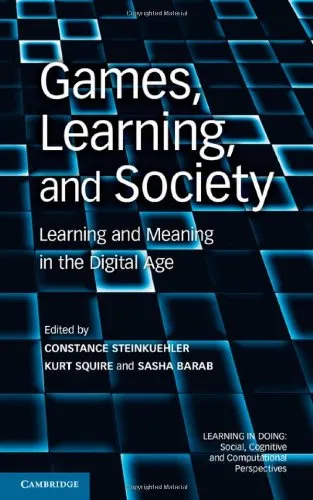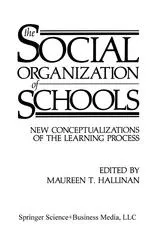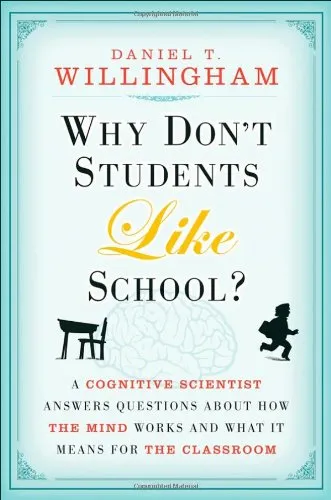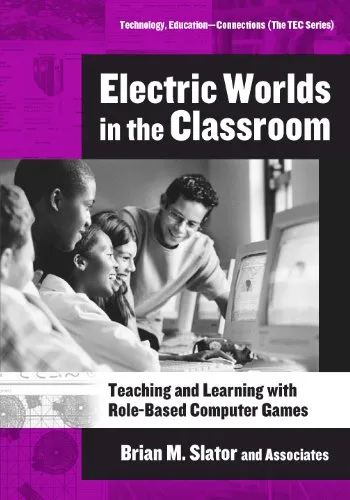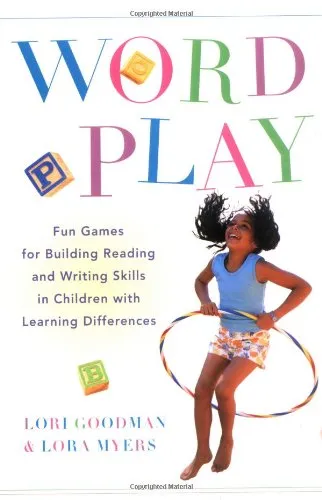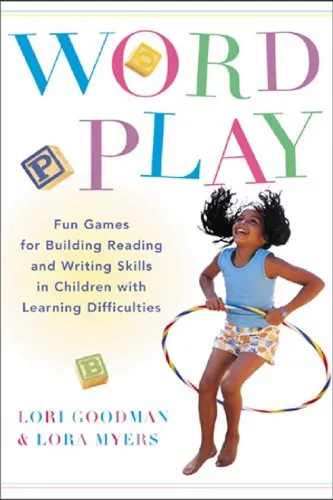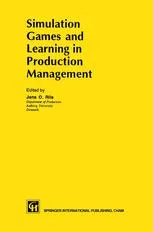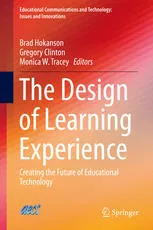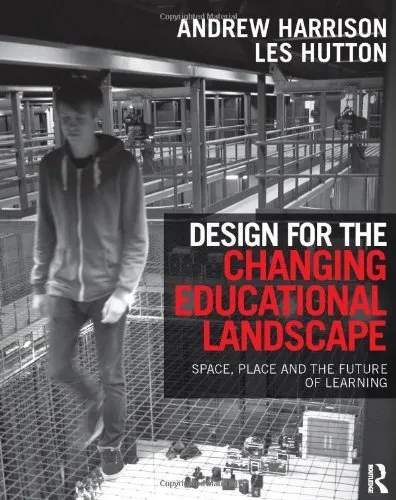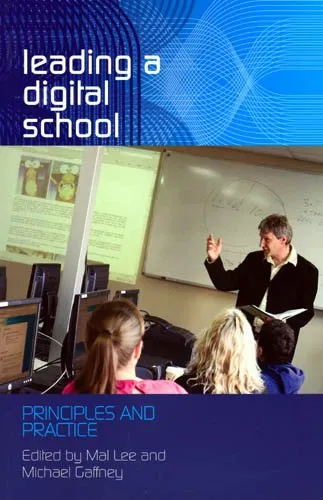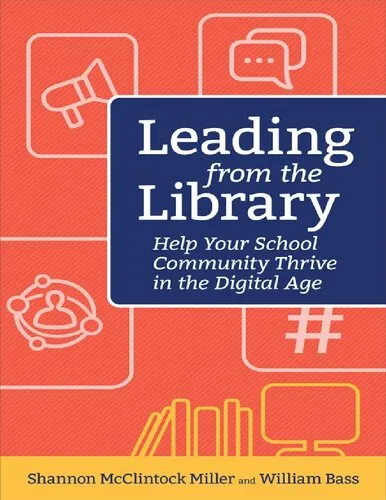Games, Learning, and Society: Learning and Meaning in the Digital Age
4.5
بر اساس نظر کاربران

شما میتونید سوالاتتون در باره کتاب رو از هوش مصنوعیش بعد از ورود بپرسید
هر دانلود یا پرسش از هوش مصنوعی 2 امتیاز لازم دارد، برای بدست آوردن امتیاز رایگان، به صفحه ی راهنمای امتیازات سر بزنید و یک سری کار ارزشمند انجام بدینکتاب های مرتبط:
معرفی کتاب "Games, Learning, and Society: Learning and Meaning in the Digital Age"
کتاب Games, Learning, and Society: Learning and Meaning in the Digital Age تلاشی است برای بررسی عمیق و چندوجهی بازیهای دیجیتال به عنوان محیطهایی برای یادگیری، معناسازی، و ارتباطات در عصر دیجیتال. این اثر نوشته Constance Steinkuehler، Kurt Squire و Sasha Barab است که متخصصان برجسته در زمینه آموزش و بازیهای دیجیتال هستند.
این کتاب با بررسی علمی و تحلیل دقیق تجربیات بازیکنان و توسعهدهندگان بازی به بررسی این موضوع میپردازد که چگونه بازیهای دیجیتال قادرند به یادگیرندگان کمک کنند تا مهارتهای پیچیده، تفکر انتقادی و تعاملات اجتماعی را تقویت کنند. این اثر برای طیف گستردهای از خوانندگان، از آکادمیسینها گرفته تا طراحان بازی، معلمان و حتی والدین، قابل استفاده است.
خلاصهای از کتاب
این کتاب در چندین بخش اساسی تنظیم شده است که هرکدام به بررسی جنبهای خاص از بازیهای دیجیتال و نقش آنها در یادگیری میپردازند:
- تاریخچه و توسعه بازیهای دیجیتال به عنوان رسانههای یادگیری.
- نقش بازیها در خلق اجتماعی-فرهنگی مهارتها و دانش.
- مطالعه موردی درباره کاربرد بازیهایی مانند World of Warcraft در تقویت تفکر سیستمی و حل مسأله.
- تحلیل جامعی بر جنبههای شناختی، روانشناسی و فرهنگی بازی.
- کاوش نقش معلمان و والدین در تسهیل یادگیری از طریق بازیها.
کتاب نه تنها بر رویکردهای آموزشی تاکید دارد، بلکه به مسائل پیچیدهتری مانند هویت، تعادل میان سرگرمی و یادگیری، و آینده بازیها نیز میپردازد.
نکات کلیدی از کتاب
در اینجا چندین دستاورد و درک کلیدی از مطالب کتاب آورده شده است:
- Contextual Learning: بازیهای دیجیتال یادگیرندگان را در محیطهایی غنی از بافت قرار میدهند که یادگیری را تسهیل کرده و انگیزه را افزایش میدهند.
- Collaboration: بازیها پل ارتباطی قدرتمندی برای همکاری و تعامل اجتماعی فراهم میکنند.
- Critical Thinking: بازیهای پیچیده مانند Civilization باعث تقویت تفکر انتقادی و توانایی تصمیمگیری میشوند.
- Identity Formation: بازیهای دیجیتال نقش مهمی در شکلدهی به هویت فردی و اجتماعی دارند.
- Serious Games: بازیها پتانسیل عظیمی در آموزش علوم، ریاضیات، و مهارتهای فنی دارند.
نقل قولهای مشهور از کتاب
"Games are not just for entertainment; they shape who we are, how we think, and how we interact with others in the digital age."
"Learning happens best when it’s embedded in meaningful social practices."
"The intersection of games and education is not a passing fad; it’s a glimpse into the future of learning."
چرا این کتاب اهمیت دارد
در دوران پیشرفته فناوری و دیجیتال، بازیهای ویدئویی به یکی از فراگیرترین ابزارهای سرگرمی و آموزش تبدیل شدهاند. این کتاب نگاهی عمیق به این موضوع دارد که چگونه بازیها میتوانند به یادگیری، تعامل و حتی توسعه جوامع کمک کنند. Games, Learning, and Society پلی بین تئوری و عمل است و ابزارهایی ارزشمند برای معلمان، توسعهدهندگان بازی و سیاستگذاران فراهم میکند.
این کتاب به ما نشان میدهد که بازیها تنها جنبههای تفریحی ندارند بلکه ظرفیت تغییر دیدگاه، ساختن دانش و تبدیل یادگیری به تجربهای شیرین و ماندگار را دارا هستند.
Introduction to "Games, Learning, and Society: Learning and Meaning in the Digital Age"
Welcome to the fascinating world of "Games, Learning, and Society: Learning and Meaning in the Digital Age," a groundbreaking exploration of how games are transforming education, social interactions, and meaning-making in the digital age. Authored by prominent researchers in education and digital media—Constance Steinkuehler, Kurt Squire, Ph.D., and Sasha Barab, Ph.D.—this book bridges the domains of technology, pedagogy, and cultural studies to present an interdisciplinary perspective on the purposeful role of video games in learning and societal development.
This volume is not just a deep dive into the mechanics and affordances of gaming, but also a celebration of the rich potential they hold to encourage critical thinking, collaboration, and creativity. In a world increasingly defined by digital interactions, games are emerging as cultural artifacts and powerful tools for education. The book investigates why this is the case and, perhaps more importantly, how we can leverage games to make meaningful contributions to society.
Summary of the Book
"Games, Learning, and Society" is a collection of essays by leading thinkers in the fields of gaming, education, and sociocultural studies. Each chapter examines a different aspect of the interplay between games and learning, painting a comprehensive picture of the roles games play in education and beyond.
The book delves into a variety of topics, including how games can cultivate engagement and motivate learners, how virtual spaces foster social skills and teamwork, and how digital media reshape the traditional boundaries of classrooms. It also addresses the broader implications of gaming culture, such as the power of community-building within massively multiplayer online games (MMOGs) and the emergent norms and values that players create within these environments.
The authors showcase research-based evidence tracking the growing alignment of games with progressive educational theories. They argue that games are uniquely positioned to help “flatten” hierarchies within learning spaces, empower learners to explore complex systems, and push them toward mastery through adaptive challenges. Overall, the book serves as both a theoretical and practical guide for educators, game designers, and policymakers interested in the educational uses of digital games.
Key Takeaways
- Games offer dynamic, responsive environments where learners can engage in problem-solving and systems thinking.
- The role of games extends beyond entertainment—they foster sociocultural engagement and authentic learning experiences.
- Digital games support diverse forms of play, autonomy, and experimentation, which are essential for knowledge construction.
- Educators and game designers have the opportunity to co-create learning environments that harness the intrinsic motivational elements of play.
- The lessons learned from gaming culture, such as collaboration and immersion, have practical applications for real-world problem-solving.
Famous Quotes from the Book
“We are designing for a generation of learners who are no longer passive absorbers of content; they are active participants in their own meaning-making.”
“Games are not merely engines of escapism, but ecosystems of exploration—a place where failure is embraced as a step toward mastery.”
“Through games, we teach not by telling, but by allowing learners to experience, experiment, and engage firsthand.”
“The power of digital games lies not just in their ability to teach, but in shaping how we think about what learning itself means in the 21st century.”
Why This Book Matters
"Games, Learning, and Society: Learning and Meaning in the Digital Age" arrives at a time when education is being fundamentally redefined. In an era where traditional approaches to teaching are proving insufficient in preparing students for the complexities of the modern world, this book highlights the benefits of blending education with play, curiosity, and exploration. It matters because it recognizes the power of gaming as a medium for teaching crucial 21st-century skills like adaptability, collaboration, systems thinking, and creativity.
Furthermore, it challenges widespread misconceptions about gaming, elevating the discourse beyond trivialization. The authors make a compelling case for why gaming should be taken seriously as both an educational platform and a cultural phenomenon, inspiring researchers, educators, and game developers to think critically about how they can use games to make a broader impact.
In essence, this book is an invitation to reimagine how we approach learning—through the lens of digital interactivity and engagement. It equips readers with the framework and language needed to advocate for games as transformative tools not just in classrooms, but in workplaces, communities, and beyond. By doing so, it reshapes the narrative of learning, paving the way for innovative pedagogical models in the digital age.
دانلود رایگان مستقیم
شما میتونید سوالاتتون در باره کتاب رو از هوش مصنوعیش بعد از ورود بپرسید
دسترسی به کتابها از طریق پلتفرمهای قانونی و کتابخانههای عمومی نه تنها از حقوق نویسندگان و ناشران حمایت میکند، بلکه به پایداری فرهنگ کتابخوانی نیز کمک میرساند. پیش از دانلود، لحظهای به بررسی این گزینهها فکر کنید.
این کتاب رو در پلتفرم های دیگه ببینید
WorldCat به شما کمک میکنه تا کتاب ها رو در کتابخانه های سراسر دنیا پیدا کنید
امتیازها، نظرات تخصصی و صحبت ها درباره کتاب را در Goodreads ببینید
کتابهای کمیاب یا دست دوم را در AbeBooks پیدا کنید و بخرید
1346
بازدید4.5
امتیاز0
نظر98%
رضایتنظرات:
4.5
بر اساس 0 نظر کاربران
Questions & Answers
Ask questions about this book or help others by answering
No questions yet. Be the first to ask!
